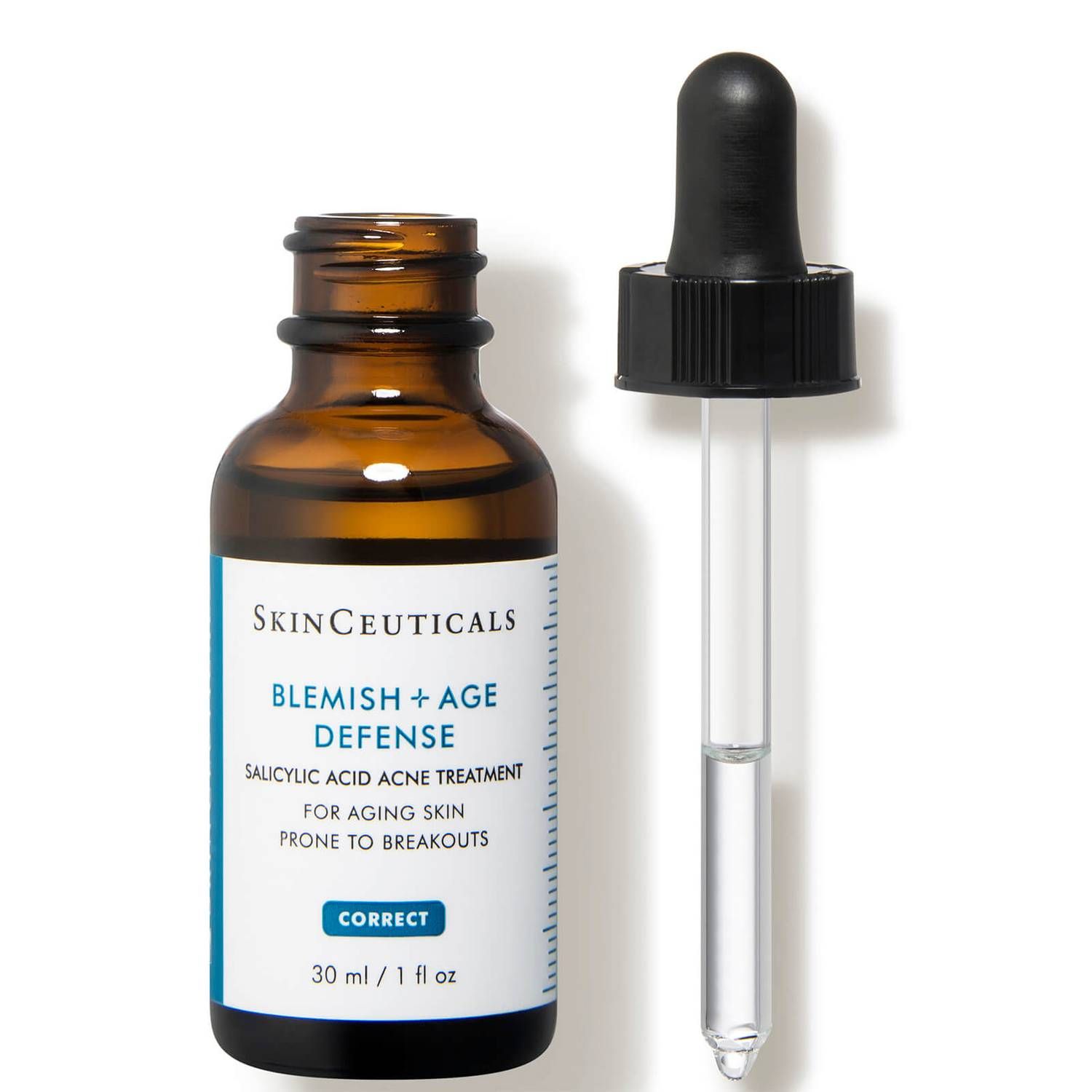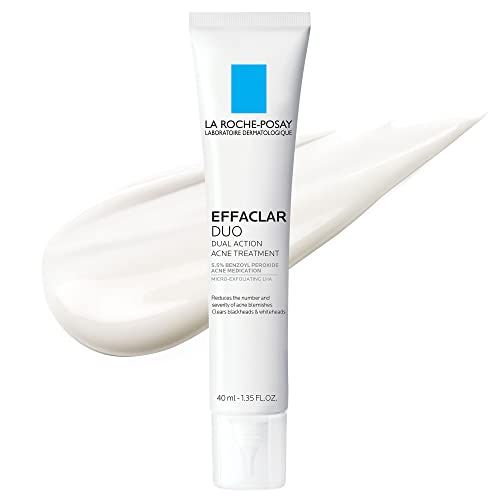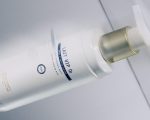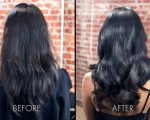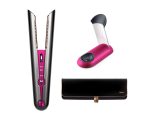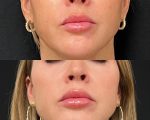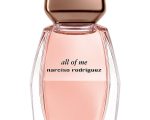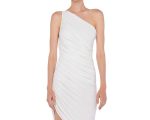The original post is located at www.elle.com
Everyone’s introduction to makeup may be completely different. However, when it comes to acne, the story starts the same exact way for most—with a pimple. One pimple can turn into a cluster in the blink of an eye, then comes the frequent breakouts, scarring, grimy makeup, oily skin, and more, thus beginning the challenging (and seemingly endless) journey of acne.
The golden rule of skin care has always been to wear sunscreen. Still, it’s important to understand another skin care principle: No single product or treatment can eradicate those pesky blemishes from your skin. Between targeted over-the-counter products, prescription medication, in-office treatments from your dermatologist, and a lot of patience, results can appear in a matter of days. Since acne can be a tricky code to crack, it’s best to consult your dermatologist to see what’s happening underneath your skin before you begin to work on the surface. Don’t just take our word for it.
Ahead, Dr. Marisa Garshick and Dr. Lauren Penzi break down the best skincare routine for those dealing with acne.
What causes acne?
Good news: your diet probably isn’t what’s triggering your breakouts. “Acne is caused by a combination of factors, including increased sebum production, clogged pores, inflammation, and bacteria. More specifically, it is thought that dead skin cells shed and clog the hair follicles in a process known as hyperkeratinization,” Dr. Garshick says. Also, look to your periods—hormonal imbalance can trigger acne breakouts, too. “There is also increased oil production that may occur as a result of hormonal shifts, increased prevalence of bacteria known as cutibacterium acne, and increased inflammation,” she explains.
Now, let’s get into the different types of acne that may sprout up on your face. The most common types are blackheads and whiteheads. “Blackheads and whiteheads, specifically referred to as open and closed comedones, often result from increased oil production and clogged pores,” Dr. Garshick adds. “Acne characterized by red bumps, including papules, pustules, nodules, and cysts, can occur as a result of inflammation and bacteria in addition to clogged pores.”
How do you know if you have acne-prone skin?
“All skin types can potentially be ‘acne prone.’ Although traditionally, people with oily skin and large/clogged pores are considered more acne-prone, even those with dry, sensitive skin can be acne-prone as well,” Dr. Penzi says.
To put it plainly, if you have frequent breakouts, you have acne-prone skin. “Acne-prone skin refers to skin that may be more susceptible to breakouts, which can include smaller clogged pores or larger, deep-seated breakouts. While acne-prone may also be skin that is oily, not all those with acne-prone skin have oily skin,” Dr. Garshick adds.
What are the best ingredients for treating acne?
Here’s where things get tricky. While you may feel compelled to buy any product touted for its “acne-fighting” ingredients, understanding what your skin truly needs will yield the results you desire, sans any damage. According to Dr. Garshick, a retinoid is one of the most effective ingredients for fighting acne. “Retinoids are vitamin A derivatives that help to regulate skin cell turnover to prevent the build-up of dead skin and clogged pores,” Dr. Garshick explains. Retinoids can be purchased over the counter (see: Adapalene) or prescribed by your dermatologist, the latter being more effective as derms can prescribe a retinol with a higher strength than what’s offered in-store.
Another great ingredient is salicylic acid, which “is a beta hydroxy acid and an oil-soluble exfoliant that helps to unclog the pores and reduce oil while also helping to eliminate dead skin,” Dr. Garshick says. Other effective ingredient options include benzoyl peroxide or sulfur.
“Benzoyl peroxide is known for its antibacterial properties as it helps to fight acne-causing bacteria and can also help to reduce acne-related inflammation; sulfur has antibacterial benefits and can also help to reduce excess oil,” she explains. As many of the ingredients mentioned above help to exfoliate the skin, it’s important to repair and soothe the skin with hydrating solutions. Dr. Garshick suggests incorporating “hydrating and nourishing ingredients like hyaluronic acid, ceramides, and niacinamide to help support the skin barrier.”
What is the best routine for acne?
Acne routines are extremely personal, so what works for your favorite influencers or your peers might not necessarily work for you. However, there are a few essential products every routine should have—ingredients, frequency, and strength should be discussed with your skincare expert.
- Cleanser — Your skincare routine isn’t complete without a facial cleanser. Depending on the state of your skin, Dr. Penzi suggests using a gentle hydrating cleanser or a face wash with an active ingredient in it, such as salicylic acid or benzoyl peroxide. “Some people may opt for a medicated cleanser such as one containing benzoyl peroxide or salicylic acid, while others with acne-prone skin may prefer a gentle cleanser to help better tolerate leave-on active ingredients such as prescriptions or OTC retinoids or benzoyl peroxide. Those with oily skin may prefer a foaming or gel-based cleanser,” Dr. Garshick explains.
- Treatment — In this step, reach for any topical acne-fighting medication, whether in the form of a serum or spot treatment. “In the morning, someone dealing with breakouts may apply a spot treatment or a leave-on product, toner, gel, or serum containing active ingredients like salicylic acid or benzoyl peroxide,” Dr. Garshick adds. Save the retinol and heavier actives for the PM routine (before your moisturizer). If you’re confused about the order of your skincare products, refer to our extensive guide.
- Moisturizer — After treating your acne or spots, “it is important to use a gentle moisturizer to help hydrate, soften and smooth the skin to help support the skin barrier and also improve tolerability to acne-fighting ingredients,” Dr. Garshick suggests.
- Sunscreen — If you’re not wearing sunscreen, what are you doing? Sunscreen protects against harmful UV rays, keeps dark spots at bay, and prevents any blemishes from appearing darker.
